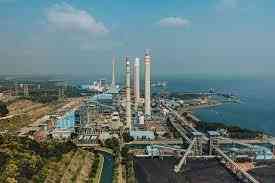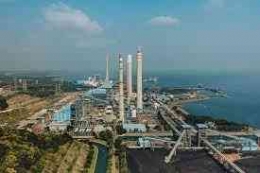The National Aeronautics and Space Administration (NASA) reports that by 2022 the Earth's surface temperature has risen 0.89 °C compared to the average annual temperature for the period 1951-1980. Extreme temperature change causes a climate crisis that threatens the lives of all living things. Therefore, the world is faced with the problem of the climate crisis that must be addressed immediately. How does Indonesia respond to the climate crisis?
Indonesia's Carbon Emissions
According to data compiled by the Emission Database for Global Atmospheric Research (EDGAR), in 2020 Indonesia ranked 10th as a carbon-emitting country. From 2010 to 2018 national carbon gas emissions experienced an upward trend of around 4.3% per year. The Meteorology, Climatology and Geophysics Agency Republic of Indonesia through its observations from 1981 to 2018 reported the same trend of 0.3 °C increase in temperature every year in Indonesia. That means in 30 years Indonesia experienced a temperature increase of 0.9 °C.
The increase in temperature causes a rise in sea level of about 0.8-1.2 cm each year. Indonesia is surrounded by sea and 65% of its population lives in coastal areas. This makes Indonesia as an archipelago vulnerable to the risks of climate change.
How does climate change affect the Indonesian economy? First, the increased intensity of floods and droughts will exacerbate clean water scarcity. Second, severe forest fires will become more frequent. This can lead to the loss of ecosystems, biodiversity and biomass changes. Third, rising sea surface temperature will lead to the extinction of some biodiversity such as coral reefs, seaweed, mangroves and marine ecosystems. Fourth, flooding can lead to the spread of vector-borne diseases and death by drowning. Fifth, changes in the biome and ecosystem production can lead to food scarcity. From those five points, it is projected by the Indonesian Ministry of National Development Planning that Indonesia's economy will be impacted by 0.66% to 3.45% of Gross Domestic Product (GDP) by 2030 if Indonesia can keep the temperature increase below 2 °C. However, the impact will be more severe, reaching 30%-40% of GDP if Indonesia is at a moderate to high emission level.
So, who should be responsible for climate change in Indonesia? In this case, producers are the stowaways as they do not bear the cost of negative externalities in the form of pollution during production while consumers buy products at prices that do not reflect the cost of environmental pollution. As a result, macro-impacts in the form of environmental degradation and its attendant costs are inevitable. In a 2022 report of the Ministry of Energy and Mineral Resources Republic of Indonesia, the energy sector contributed the largest carbon emissions of 453.2 million tons of carbon dioxide equivalent (CO2e) or about 34% of Indonesia's total greenhouse gas emissions in 2010.
Fiscal Policy as a Game Changer
Indonesia's vision of becoming a high-income country and one of the world's largest GDPs by 2045 is overshadowed by worsening climate problems. In addition, the European Union's agenda is increasingly promoting the imposition of import taxes on goods that produce carbon emissions. This will hamper the acceleration toward a golden Indonesia in 2045. The government must take decisive and bold action to tackle climate problems.
The Indonesian government through the Paris Agreement (2016) has committed to dealing with the impacts of climate change globally by targeting net zero emissions in 2050. To show its seriousness in achieving net zero emission, the Government of Indonesia has taken concrete steps by implementing Pigouvian tax in the form of carbon tax as stipulated in Law Number 7 of 2021 regarding the Harmonization of Tax Regulations Law.
The carbon tax rate in Indonesia is set higher or equal to the market price of carbon in the market per kilogram of carbon dioxide equivalent (CO2e), and if the market price of carbon is lower than IDR 30 per kilogram, the carbon tax rate is set at the lowest IDR 30 per kilogram of carbon dioxide equivalent (CO2e) or an equivalent unit.







